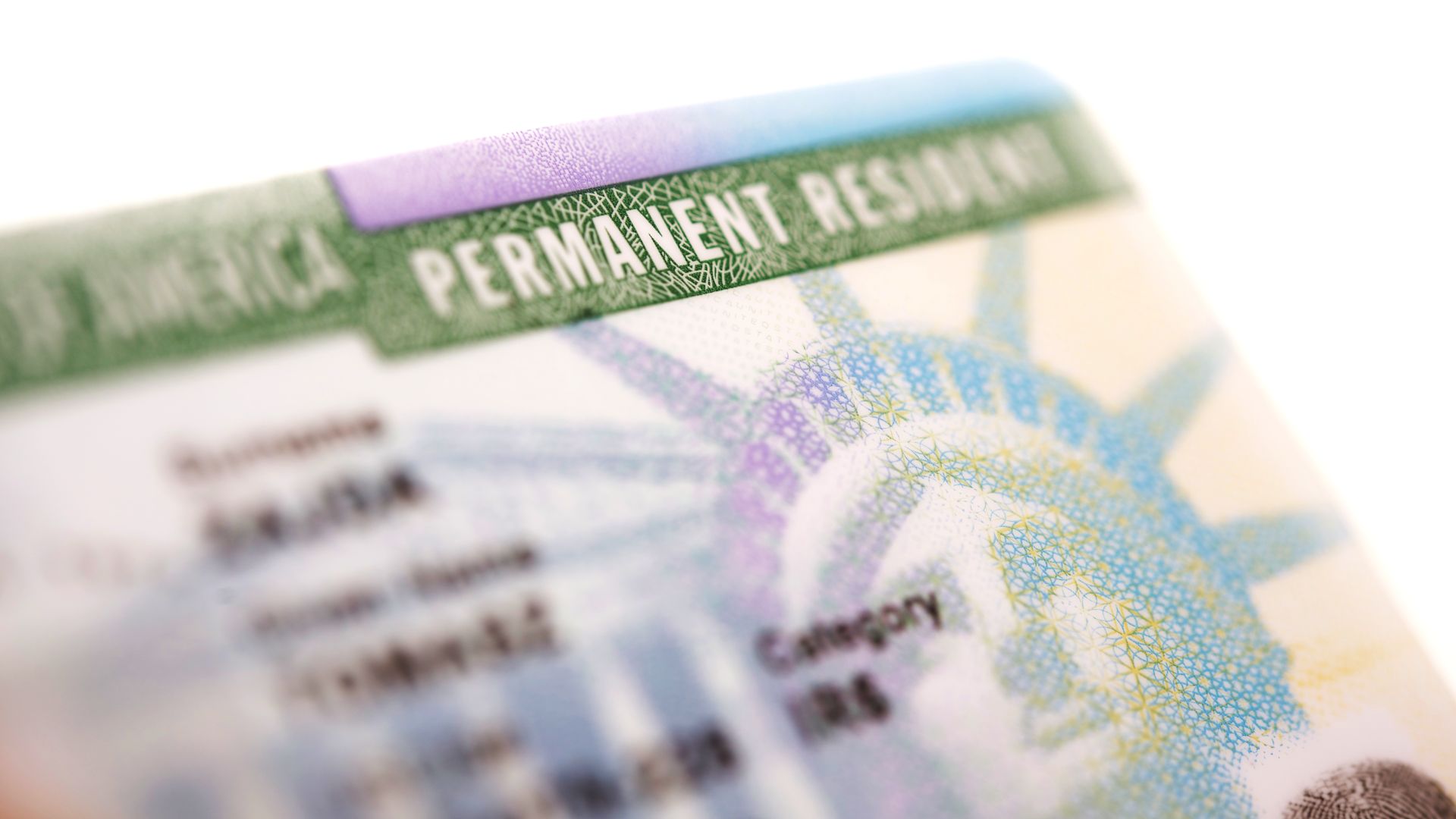Becoming a U.S. citizen through naturalization is an exciting and life-changing process. For many immigrants, it represents the final step in their journey to secure permanent residence and become full members of American society. However, one of the most common questions that applicants have is: “How long does the naturalization process take?”
At Rebecca Black Immigration, PA, based in Jacksonville, Florida, we understand the importance of this question for individuals seeking U.S. citizenship. In this blog post, we will explore the key factors that affect the timeline for naturalization, the general steps involved, and how you can prepare for a smooth process.
What is Naturalization?
Naturalization is the legal process by which a non-citizen becomes a U.S. citizen. To be eligible for naturalization, applicants must meet certain requirements, including being a permanent resident (green card holder) for a specified period, demonstrating good moral character, and passing a civics and English language test.
Once the naturalization process is complete, individuals take the Oath of Allegiance to the United States and officially become U.S. citizens, with all the rights and responsibilities that come with citizenship.
Key Factors Affecting the Naturalization Timeline
The length of the naturalization process can vary based on several factors. Below are the main aspects that influence how long it will take for you to become a U.S. citizen:
1. Eligibility Requirements
To apply for naturalization, applicants must meet the following general eligibility criteria:
- Permanent Residency (Green Card Holder): Most applicants must have been a permanent resident of the U.S. for at least five years (or three years if married to a U.S. citizen).
- Continuous Residence: Applicants must demonstrate that they have lived continuously in the U.S. during the required residency period.
- Physical Presence: Applicants must have spent a certain amount of time physically present in the U.S. during the residency period. For example, applicants must have been in the U.S. for at least 30 months of the past five years.
- Good Moral Character: Applicants must show that they have been law-abiding and have not committed crimes or violated U.S. immigration laws.
- English Proficiency: Applicants must demonstrate an understanding of English unless they qualify for an exemption due to age or disability.
- Civics Knowledge: Applicants must pass a civics test that covers U.S. history, government, and rights.
If you meet these eligibility criteria, you can begin the naturalization process. However, delays in meeting the requirements (such as waiting to meet the residency requirement) can extend the timeline.
2. Application Processing Times
The most significant factor influencing how long the naturalization process will take is how long it takes the U.S. Citizenship and Immigration Services (USCIS) to process your application. The naturalization process involves several steps, each of which can take time to complete.
Step 1: Submit Your Naturalization Application (Form N-400)
The naturalization process begins when you file Form N-400, Application for Naturalization, with USCIS. The processing time for Form N-400 can vary depending on several factors, including your location and the USCIS service center handling your case.
- Typical Timeline: Processing time for Form N-400 usually takes anywhere from 8 to 12 months on average, though it can take longer in some cases. The timeline can vary depending on your specific situation and the current workload at USCIS.
Step 2: Biometrics Appointment
After submitting your N-400 application, USCIS will schedule a biometrics appointment where you will have your fingerprints, photo, and signature taken. Biometrics is required for background checks.
- Typical Timeline: Biometrics appointments are generally scheduled within a few weeks after USCIS receives your application. The appointment itself typically takes about 30 minutes.
Step 3: Interview with USCIS
Once your biometrics have been processed, USCIS will schedule an interview where you will be asked questions about your application and your background. During the interview, you will also be required to take the civics and English language tests unless you qualify for an exemption.
- Typical Timeline: The interview typically occurs about 6 to 8 months after your application is submitted, though the timeline can vary depending on your local USCIS office and its workload.
Step 4: Naturalization Oath Ceremony
If you pass the interview and the required tests, and USCIS approves your naturalization application, you will be scheduled for a naturalization oath ceremony. During this ceremony, you will take the Oath of Allegiance and officially become a U.S. citizen.
- Typical Timeline: The oath ceremony can occur within a few weeks or months after your interview, depending on availability and scheduling at your local USCIS office.
3. USCIS Service Center and Location
Processing times for naturalization can vary depending on the USCIS service center or field office handling your application. Certain field offices may have longer processing times due to high volumes of applications or staffing limitations.
- Local USCIS Field Offices: The service center or field office that processes your application will play a role in how long the process takes. In some areas, such as larger cities like Jacksonville, the process may take a little longer due to higher demand. However, applicants may be able to request expedited processing in some situations, such as urgent travel needs or military service.
- COVID-19 Delays: The COVID-19 pandemic has caused significant delays in the processing of naturalization applications. Though USCIS has taken steps to address the backlog, the pandemic may still have an impact on processing times in some cases.
4. Request for Additional Information
Occasionally, USCIS may request additional information or documentation during the naturalization process. This could extend the timeline, depending on how quickly you can respond to the request.
- RFE (Request for Evidence): If USCIS needs additional information or documents, they will issue an RFE. Responding to an RFE promptly can help avoid further delays.
- Deferments and Rescheduling: If there are issues with your background check, a history of criminal convictions, or any other complications, the process may be deferred or delayed until those issues are resolved.
5. Factors that Can Affect Processing Times
Some additional factors that can influence how long the naturalization process takes include:
- Criminal History: If you have a criminal history, it could complicate the process. USCIS will conduct a thorough background check, and any criminal offenses could delay or even disqualify you from naturalization.
- Changes in Immigration Policy: Changes in U.S. immigration policy or laws could impact how long it takes for applicants to go through the process.
- Volume of Applications: The number of naturalization applications filed in a particular year can affect processing times. During periods of high demand, processing times may increase.
Estimated Timeline for Naturalization
Here’s a rough breakdown of how long the naturalization process typically takes, from start to finish:
| Step | Time Frame |
|---|---|
| Form N-400 Submission | 8 to 12 months (average) |
| Biometrics Appointment | A few weeks after N-400 submission |
| Naturalization Interview | 6 to 8 months after submission |
| Oath Ceremony | A few weeks to months after interview |
Overall, the entire process typically takes between 8 and 12 months, but depending on your situation, it could take longer.
How to Speed Up the Naturalization Process
While the naturalization process is mostly out of your control, there are a few steps you can take to ensure that your application moves along smoothly:
- Submit a Complete Application: Ensure that your Form N-400 is filled out completely and accurately to avoid delays caused by missing or incorrect information.
- Respond Promptly to Requests: If USCIS requests additional documentation or information, provide it as soon as possible to avoid unnecessary delays.
- Check Processing Times: Use the USCIS online tools to check the status of your application and review the processing times for your local field office.
- Consider Premium Processing: While premium processing is not available for naturalization, some applicants may be eligible for expedited processing under specific circumstances (e.g., military members or those facing urgent travel needs).
Closing Thoughts
The naturalization process is a vital step toward becoming a U.S. citizen, but the timeline can vary based on several factors, including eligibility, USCIS workload, and local processing times. On average, the entire process can take 8 to 12 months, but it’s important to plan ahead and be prepared for potential delays.
At Rebecca Black Immigration, PA, we are committed to guiding you through every stage of the naturalization process. Whether you’re ready to apply for citizenship or need assistance with your application, our experienced immigration team is here to help.
Contact us today to schedule a consultation and get expert guidance on your path to U.S. citizenship!







